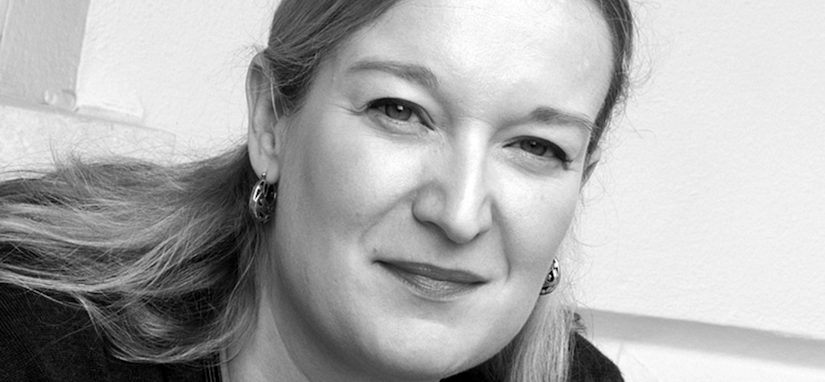Interview Karen McGrane: "UX design practices apply to content just as much as they do to interfaces"
Speaker USI 2016

What attracted you to UX and to content strategy in particular? How did you end up working in this area?
I’m one of the rare people in this profession that really hasn’t done anything else. I have a graduate degree in Human Computer Interaction and Technical Communication, as they called it at the time. It’s essentially User Experience, Design and Content strategy.
I studied this back in the mid 90s’, at an Engineering school called Rensselaer, in Upstate New-York, and acquired very solid foundations of user-centered design principles.
Generally, a lot of the principles and practices that I have seen evolve more broadly in UX over the last 20 years are things that I actually studied at school. I think that’s quite rare. Many people in this industry have had to figure it out as they went along and learn things on the job. I feel very lucky and grateful that I had the chance, twenty years ago, to immerse myself in the foundations of the field in a graduate program.
So this graduate program was immediately related to content?
Yes. There is a very strong tradition of technical communication in the US, and what I would refer to as a rhetorical discipline: understanding the needs of the reader, learning how to write in a way that tests the reader’s own expertise, values, and mind.
So much of what I have seen evolve on the Web in terms of user experience and action design comes out of this tradition of writing in technical communication: how do you conceive of your audience and put yourself in the reader's’ shoes, how to write and structure your document in such a way that the reader would be able to get the messages you intend.
One of my very first jobs was doing usability testing on printing manuals. I consider it such a solid foundation. In a sense I feel it has been lost, to a degree. We take user experience design practices as if they apply only to interfaces and transaction experience and not necessarily to the content itself. But it does.
What are some of the great milestones in terms of Web content, mobile in particular?
If you look back in the history of Web content management, the mid 90’s and early 2000 were pretty much prehistory. There was very little content management, or it was either a badly functioning, complex enterprise system or you had to roll it yourself! A lot of people rolled their own tools to create a management interface for Web content.
Over the last ten years, we’ve seen a huge explosion in content management products. It seemed like everybody had built their own CMS and decided to productize it. In a way, I think it was a great thing for the Web. It really made Web publishing simpler.
But I also think that the proliferation of what I might call “Web publishing tools” (Wordpress, Blogger, anything that treats CMS as having the sole function of creating public web pages) had some downsides. The limitation of products like that is that they inextricably lock the content to a single publishing format. It’s kind of borrowing the same sorts of model from print, where the content and the design are completely locked together. So it’s very difficult to think of them as being separate. That’s something that you would see baked into the very technical architecture of those products, le layouts, the publishing models…
Today, especially with the rise of mobile, we have moved into an area where people are forced to realize that content can’t be locked to one particular output format. Because, by definition, it is going to live in multiple places and on multiple platforms.
This has led to a shift in how we think of content and publishing that is very different from how we had to think about it in the past.
From a technical standpoint, it means that we are seeing more tools that are API-first publishing tools. Rather than attempting to treat the content and the design as if it is one problem, we separate those out. So you’ll have CMS whose only job is to manage the content and the repository while the actual design, layout and publishing are managed in a separate system.
There are drawbacks to that as well, but if you’re thinking about mobile it’s definitely a much easier and cleaner way to think about your content.
What do you think are the future trends of UX design? Where are we headed? What have you already begun working on?
Growth means fragmentation.
When I started in this field, I was a UX person. I felt like I could credibly do a whole fleet of UX design tasks, like user research, prototyping, interaction design, content strategy, copywriting, usability testing, etc. I don’t think anyone can say that anymore. The field has grown to a point where we need more specialization. Which is a good thing! I’m wholeheartedly in favor of the idea that specialization means we are accorded the work and the time required to do the job well, with a certain level of magnitude. You don’t expect one designer to do all those activities I mentioned.
At the same time, that fragmentation means siloing in the industry. You see this with research in particular. There is a real push-pull between the idea that you want to have specialized expertise and researchers that know what the right methodology is and how to apply it. The trade off there is the more you specialize that team, then the expectation is perhaps that the design team is not participating in the research or they are not participating in the research in the same way. They are some drawbacks to that.
That’s the challenge that the industry has to wrestle with in the future. I see it in the split between interaction design and content strategy.
There was a time when UX, or information architecture for example, was seen as a discipline that explicitly attempted to integrate content and interaction design perspectives into one field. That too has cleaved, to some extent. The reason it had to cleave was so each of those disciplines could get the attention and the growth that it needed. But now, I see an entire generation of content people who think that design is not their problem. They are not exposed to the language, the skills, and the value systems that they need to speak about and direct design as I was trained. You have an entire generation of interaction designers who think that content is somebody else’s problem!
For UX to truly thrive, while we need specialization, we also need real focus on making sure that the intersections and the overlaps between our disciplines are something that we nurture, respect and support.
I don**’t think anybody can do great UX work who isn’**t collaborative. They have to ensure that the processes and the people that they are working with share collaboration as the highest goal.
I don’t just see it as individual problem, but as discipline and an industry wide problem.
What if in the future we don't use interfaces. Is that a likely scenario? If so, how will we consume content?
There always has to be some way of communicating. Unless we plug something directly into our brain! If it’s a speech-based interface – and I talk about that a lot – how does that conversational UI reflect the language that we use, the content that we are presenting... And that to me is as much an interface design problem as if it were a visual or a transactional UI that you saw on screen.
Similarly, if you were to think of the “interface” as a series of sensors and devices that you might have in your home to automatically unlock the door or turn the lights on for example – there are still a set of underlying logic and business rules there. And even if the interface itself is not something the user is controlling all the time, somebody still has to make all the decisions or figure out how to change a setting. That’s still an interface!
I don’t know that this idea of getting rid of the interface actually means that. It just means that we are moving different aspects of the interface to different tools or systems.
Now just a few questions about USIEvents. Have you watched any videos? What do you expect from your first experience there?
I have indeed! And I’m very excited about it.
I’m sure it’s going to be genuinely excellent speakers from all over the world. From what I can tell, the event production is extremely high quality which I love personally. I do a lot of public speaking, and being able to go to event that is as well organized as I think this one is, is a real pleasure.
Who would you love to see at USI this year, on in the years to come?

For the future, I would totally encourage you to speak to Sara Wachter-Boettcher. She is a content strategist and user experience designer. She just published a book with Eric Meyer called Design for Real Life, which is a much needed look at users who may be in crisis or have some other sensitive needs. They are actually human beings, as opposed to the ideal users that we imagine.

Another woman I would love for you to talk to is Lisa Welchman. I have a huge amount of respect for her. She wrote a book on digital governance that was published last year. She is probably the person on the Web who knows most the current maintenance and governance of websites over the long term.
You should definitely have them over next year!

